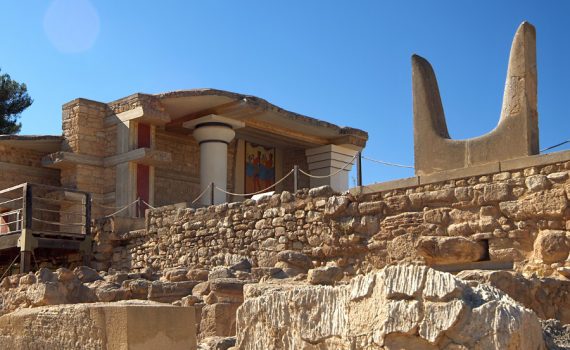The archaeological site of Knossos (on the island of Crete) —traditionally called a palace—is the second most popular tourist attraction in all of Greece (after the Acropolis in Athens), hosting hundreds of thousands of tourists a year.
videos + essays
and click here for more at the Heraklion Archaeological Museum
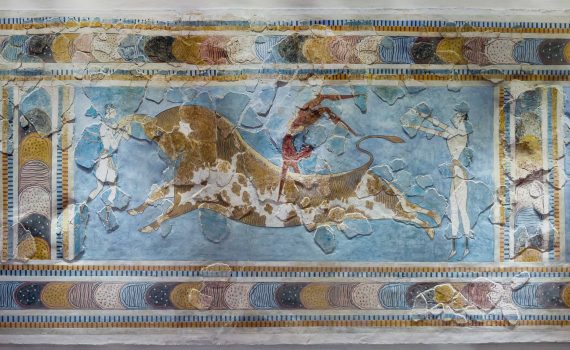
Minoan art, an introduction
The Bronze Age culture of Crete, called Minoan, is one of the most vibrant and admired in all of European prehistory.
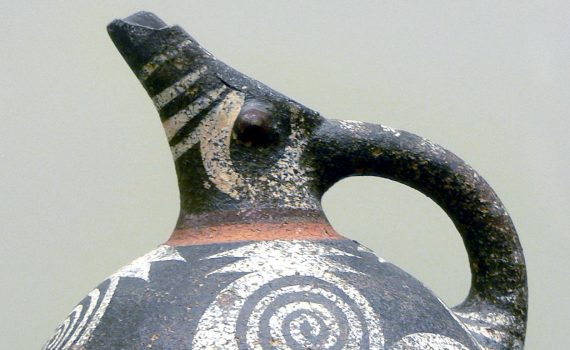
Kamares Ware Jug
This delicate type of pottery helps us understand the far-reaching trade networks in the ancient Mediterranean.
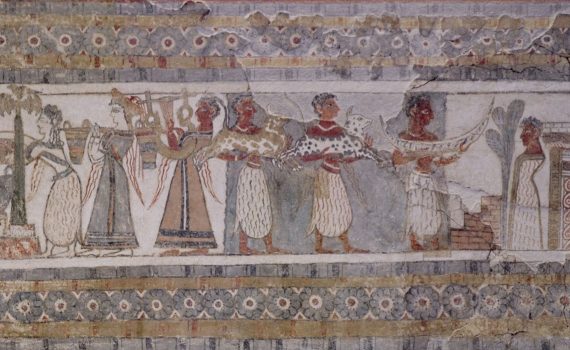
Hagia Triada sarcophagus
This beautifully painted sarcophagus depicts an elaborate burial ritual—was it made for royalty?
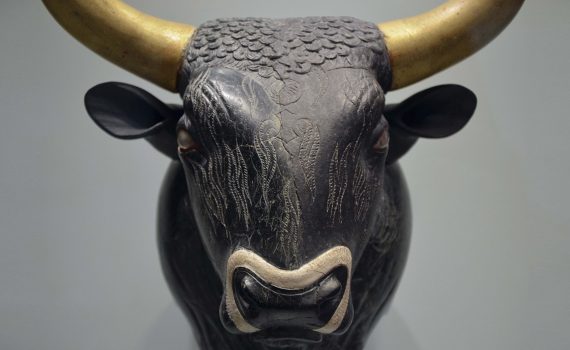
Bull’s Head Rhyton
This hollow stone vessel in the shape of a bull's head is both frighteningly realistic and beautifully stylized.
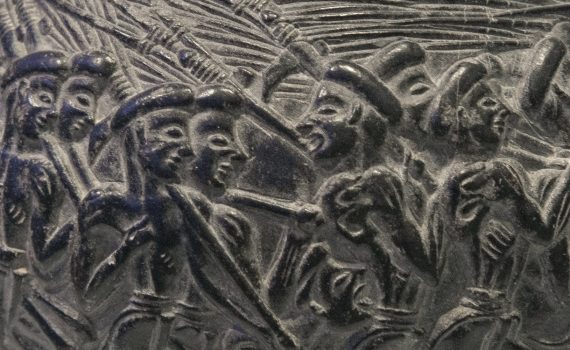
Harvester Vase
The exuberant procession depicted on this small but luxurious object celebrates the fruits of farming the land.
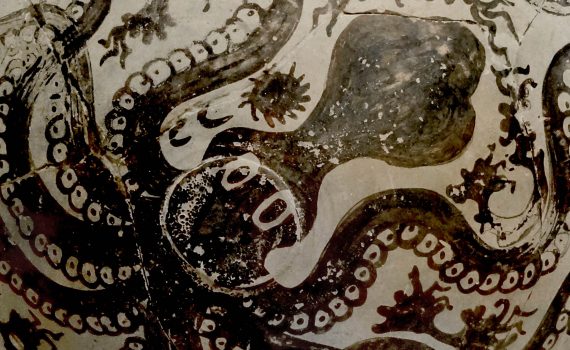
Octopus vase
This vase with a charming image of a writhing octopus was made during the height of the Minoan sea trade.
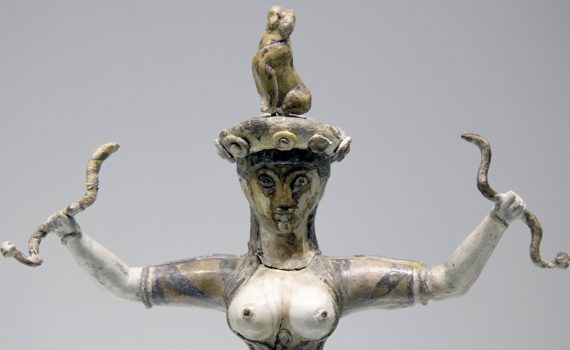
Snake Goddess
Goddess, priestess, or simply a Minoan woman? Mysteries abound in this small figurine from Knossos.
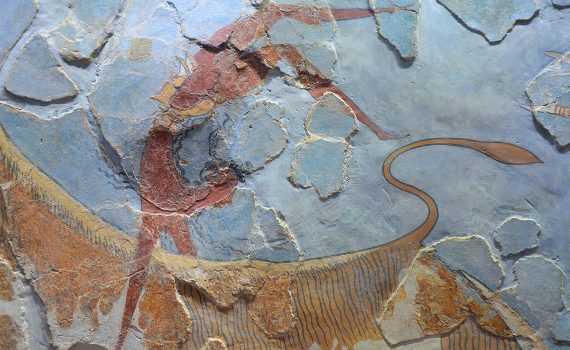
Bull-leaping fresco from the palace of Knossos
Athletic youths spring over a powerful bull—who are they, and why are they performing such a dangerous act?
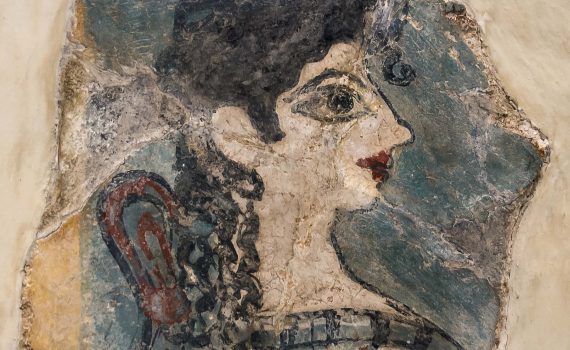
Minoan woman or goddess from the palace of Knossos (“La Parisienne”)
This woman's striking profile has long fascinated viewers, but we know surprisingly little about who she is.
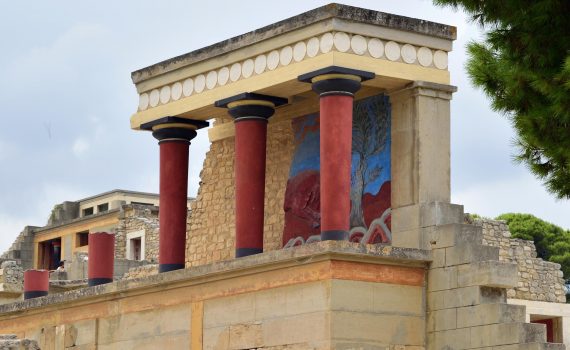
Restoration versus conservation: the Palace at Knossos (Crete)
The archaeological site of Knossos (on the island of Crete) —traditionally called a palace—is the second most popular tourist attraction in all of Greece.

